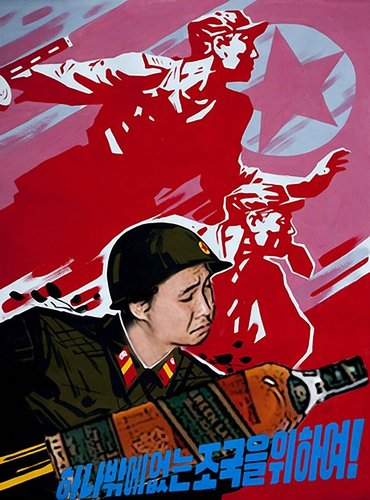National Security Law
The NYT published an article the other day on the probably overzealous application of Korea's National Security Law under the current president. Apparently a gentleman was arrested and is being prosecuted for creating and posting (on Twitter?) this parody of a DPRK poster. In it, the soldier's face has been replaced by the creator's own and his gun with a bottle of expensive whiskey. The original caption reads: "For our nation, which is like no other!"

I'm not sure if by reposting this image, I am also guilty! According to the article, the law has been applied unevenly.
“What once were called exchanges and cooperation with North Korea are now acts of ‘aiding the enemy,’ ” Mr. Lee said. He cited cases in which people were convicted based on conversations with North Korean officials during trips authorized under previous, more liberal governments.
Additionally,
Court records show that, depending on the prosecutor or judge, “The Communist Manifesto” was either a political pamphlet of historical interest or “subversive material” whose possession was punishable by as much as seven years in prison.
This quote particularly disturbs me, as I actually teach this in one of my classes. I do so, of course, to provide insight into the great variety of ways political economies can be organized, but it seems as though I may be pushing the envelope a bit further than I'd thought.
So let me be clear, since
The law makes it a crime to praise, sympathize or cooperate with North Korea if such acts threaten national security.
To my knowledge, the ruling elite of the DPRK are oppressive, offensive, and exploitative. I don't find anything to praise in their activities (other than a begrudging respect for their diplomatic ability). But of course my knowledge is now additionally limited, as it is impossible to even view the DPRK's main newspaper (KCNA) from South Korea.
